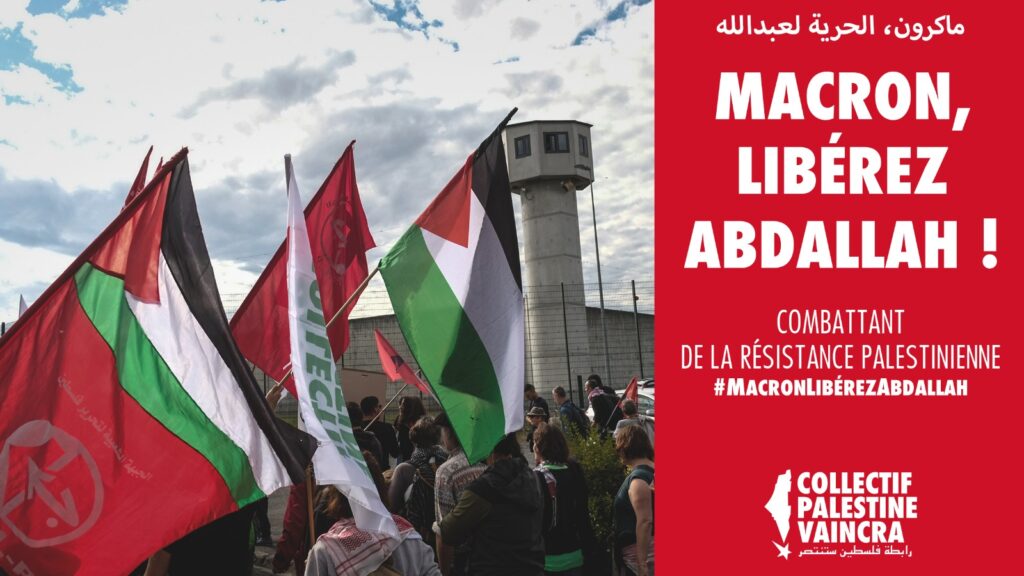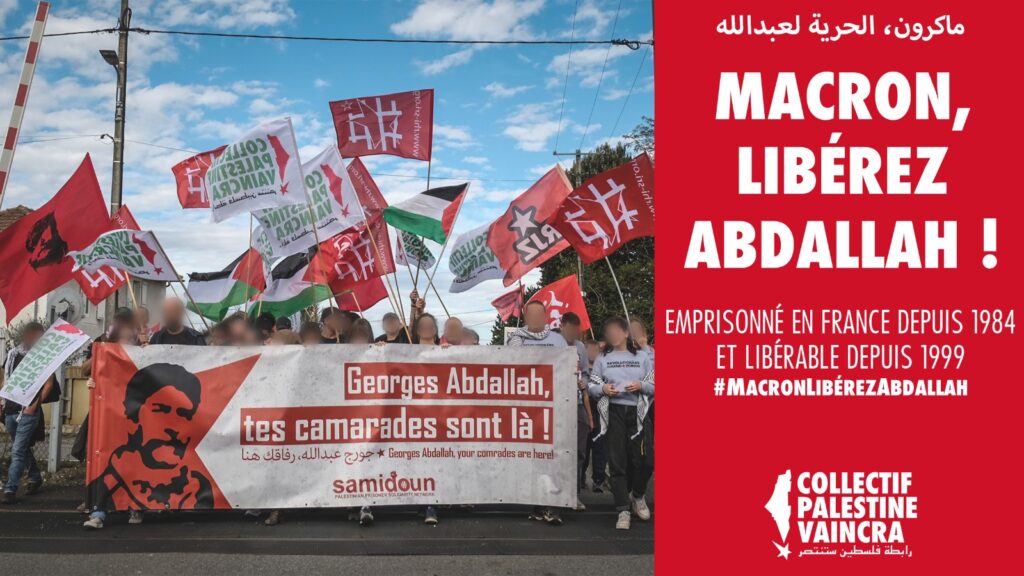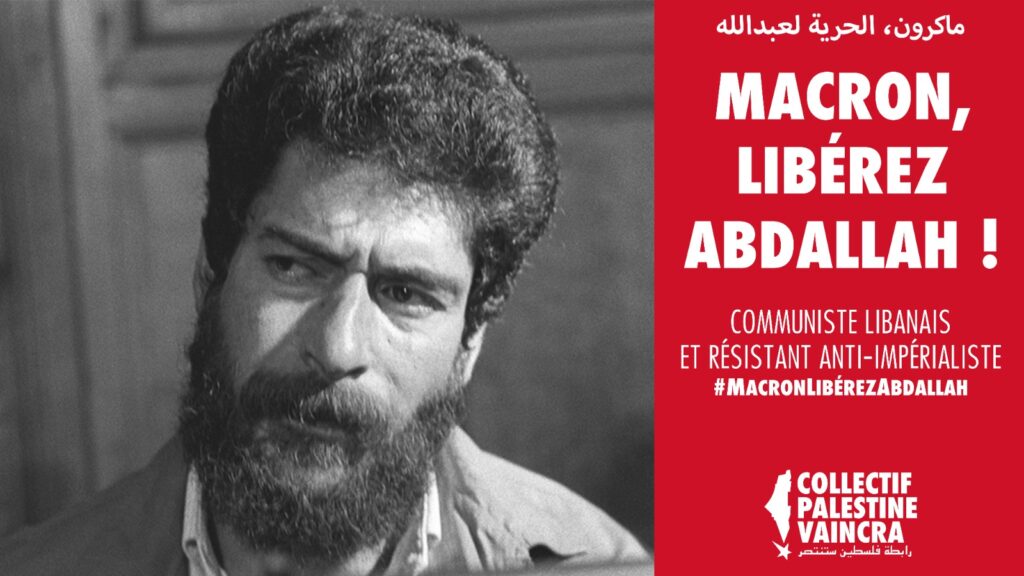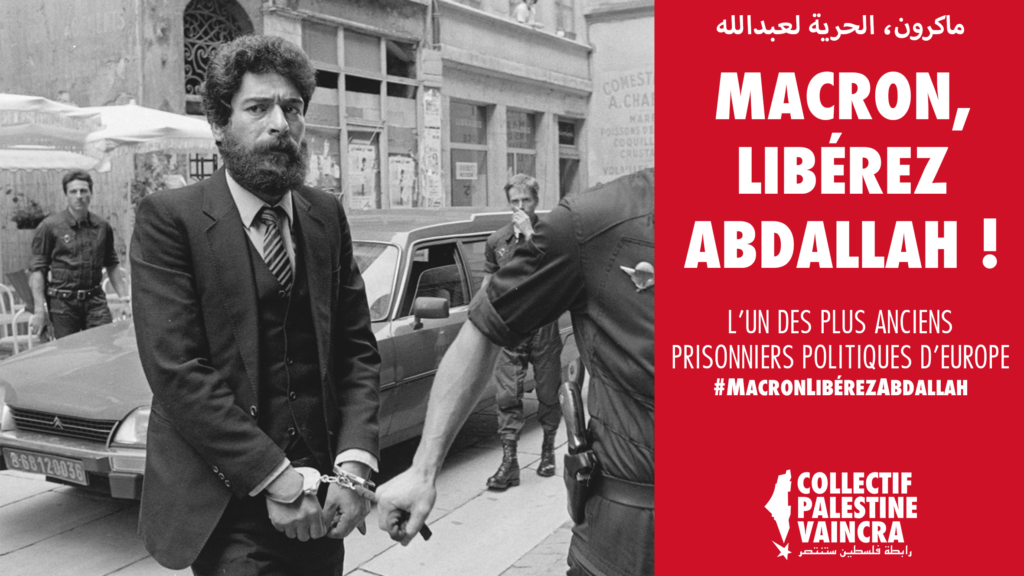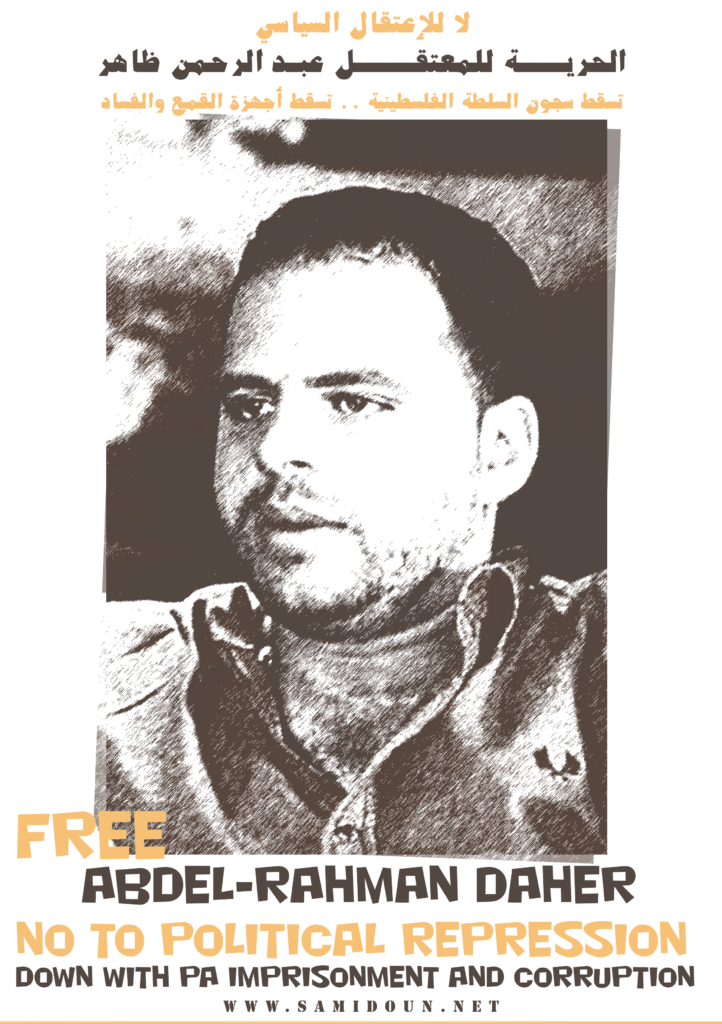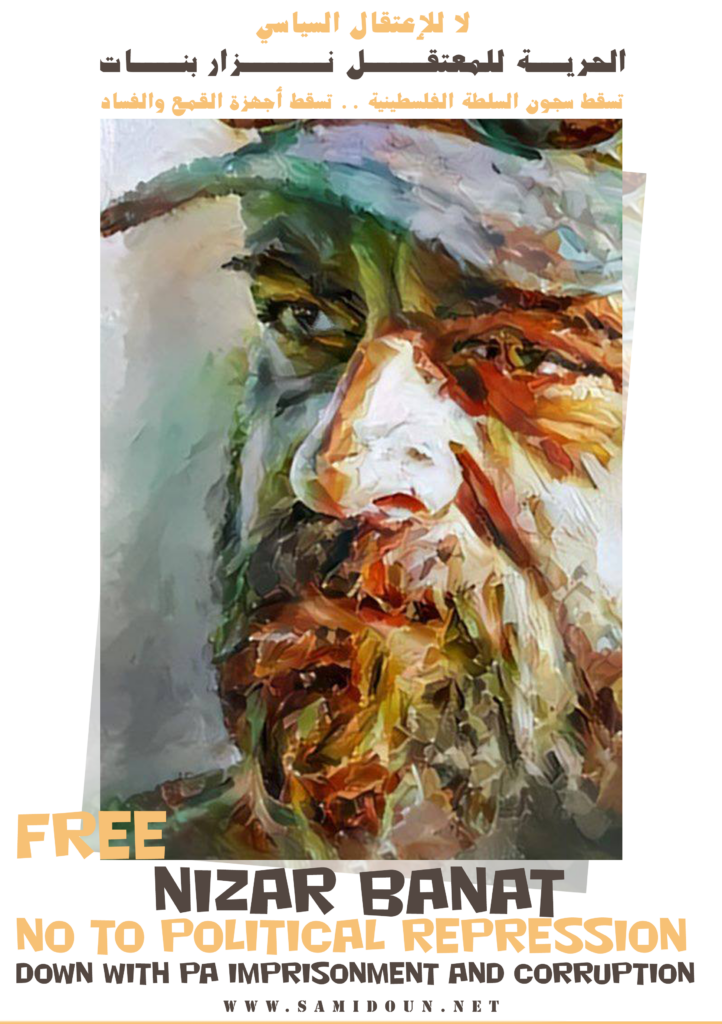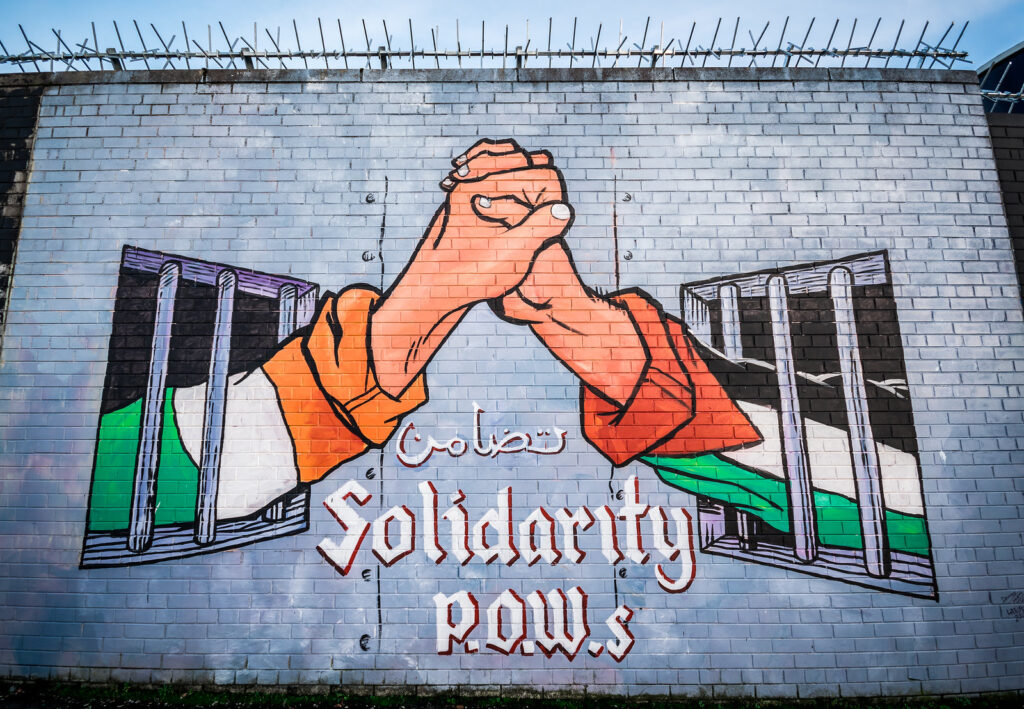
Samidoun Red de solidaridad con los prisioneros palestinos, denuncia las recientes detenciones de nueve republicanos irlandeses y un palestino por parte del MI5 británico, el Gardaí irlandés, la Policía de Escocia, la Policía Metropolitana de Londres y más de 500 agentes del Servicio de Policía de Irlanda del Norte (PSNI) en la llamada “Operación Arbacia”.
Entre ellos se encuentra el médico palestino Issam Hijjawi, destacado líder de la comunidad palestina en Escocia, ex presidente de la Asociación de Comunidades Palestinas en Escocia y representante del Foro Democrático Palestino en Europa. Los republicanos irlandeses son todos miembros de Saoradh, el partido socialista republicano revolucionario irlandés. Exigimos la liberación inmediata de todos los presos políticos detenidos en el norte de Irlanda, todavía ocupado por las fuerzas británicas.
Únase a nosotras para tomar medidas firmando esta declaración de solidaridad colectiva: https://bit.ly/saoradhsolidarity
En este momento, los diez han sido acusados y enviados a prisión, a la espera de su juicio y recluidos en aislamiento, un proceso descrito por los republicanos irlandeses como “internamiento en prisión preventiva”.
La política de internamiento, llevada a cabo oficialmente en Irlanda del Norte de 1971 a 1975, es una práctica similar a la detención administrativa de prisioneros políticos palestinos por Israel, que permite a las potencias ocupantes encarcelar a irlandeses y palestinos sin cargos ni juicio. Los presos políticos han estado recluidos durante años bajo estas prácticas, que fueron introducidas tanto en Irlanda como en Palestina por el colonialismo británico.
Si bien el internamiento terminó oficialmente, continúa persistiendo en la realidad, como lo destacaron los organizadores contra el internamiento y los republicanos irlandeses. Los republicanos irlandeses y otras personas arrestadas por cargos políticos suelen ser detenidos antes del juicio en lugar de ser liberados y recluidos en aislamiento, a pesar de la debilidad de los cargos en su contra. En algunos casos, los detenidos republicanos irlandeses son puestos en prisión preventiva basándose únicamente en la palabra de un oficial de policía británico.
Sin embargo, los prisioneros republicanos irlandeses continúan luchando y proporcionan un liderazgo continuo al movimiento, al igual que el papel de los prisioneros políticos palestinos en el movimiento de liberación. Uno de los prisioneros irlandeses, Joe Barr, declaró durante una entrevista hace dos años: “Lo que sea que el gobierno británico planee y quiera hacer conmigo, no importa, nunca cambiará lo que yo creo”.
Los arrestos parecen haberse producido después de un largo proceso de infiltración oficial británica en Saoradh, dirigido al activismo político de los republicanos irlandeses para su vigilancia y espionaje. Se han utilizado infiltrados y agentes provocadores en casos de represión política en todo el mundo en un intento de atraer a los activistas para que digan o hagan cualquier cosa, sin importar cuán insignificante sea, que pueda ser retorcida y usada en su contra, a menudo acompañada de múltiples grabaciones de audio y video.
En este caso, parece que los organizadores palestinos fueron el blanco específico de los esfuerzos de infiltración para instrumentalizar el racismo antipalestino, la criminalización y la propaganda mediática sensacionalista contra las luchas de liberación de Irlanda y Palestina juntas.
El Dr. Issam Hijjawi Bassalat, que fue detenido el sábado 22 de agosto, es un activista de larga trayectoria por la liberación de Palestina. Nacido en Palestina, anteriormente se desempeñó como presidente de la Asociación de Comunidades Palestinas en Escocia y representó al Foro Democrático Palestino en Europa. En el tribunal, señaló que el infiltrado Dennis McFadden lo había “insistido” para que se reuniera y fuera a su casa, un intento de convertir la solidaridad natural de los pueblos oprimidos y los movimientos de liberación en una intriga sensacionalista para documentos policiales e informes de los medios.
En su mensaje al Ard Fheis más reciente de Saoradh, el Dr. Hijjawi señaló algunas de las tácticas represivas que había experimentado recientemente, casi con certeza causada por la misma serie de ataques contra el movimiento republicano irlandés, antes de entregar un fuerte mensaje de solidaridad anticolonial:
Siempre, las potencias imperialistas lidiaron con la legítima aspiración nacional de los pueblos ocupados desde una perspectiva de seguridad, donde el movimiento Nacionalista que lucha por determinar su futuro y destino se empaña como movimiento terrorista, esto sucedió en todo el mundo, desde el movimiento pacifista en India – Gandhi – al movimiento armado de Nelson Mandela … desde el levantamiento de Pascua del pueblo irlandés en 1916 hasta la revolución palestina en 1929 y la ejecución a sangre fría de los líderes de ambos a manos del poder imperialista del antiguo imperio británico …
Mirando hacia atrás en los acontecimientos internacionales durante los últimos 30-40 años, podemos ver la imagen clara: el fracaso del Acuerdo del Viernes Santo, el fracaso del Acuerdo de Oslo… y por lo tanto todos los acuerdos que pretendían traer un final pacífico a la lucha nacional. En diferentes partes del globo, y además de eso, lo que estamos presenciando ahora en el Medio Oriente y América Latina, donde la gente común se rebela en las calles de Beirut, Bagdad, Argelia, Palestina, Chile, Colombia, Brasil, todos estos acontecimientos históricos demuestran un hecho claro: mientras no se aborde el tema central de las causas nacionales, la gente seguirá rebelándose a pesar de la brutalidad de los regímenes corruptos o colonizadores.
Camaradas, tengan la seguridad de que estamos en el lado correcto de la historia, ya sea en Palestina o en Irlanda, la lucha de casi un siglo por la libertad, la autodeterminación, la dignidad y la justicia social prevalecerá, y las potencias imperialistas y colonialistas tarde o temprano lo harán, serán derrotado, es sólo cuestión de tiempo “.
Saoradh emitió una declaración sobre los arrestos, declarando: “falacias pagadas, pruebas fabricadas, pruebas circunstanciales, insinuaciones y sugestiones de” mal carácter “basadas en una participación de larga trayectoria en la Lucha Republicana han dado lugar al internamiento en prisión preventiva de nuestros camaradas”.
Continuaron: “Saoradh permanece firme, comprometido y solido frente a este último ataque al partido. No seremos censurados, intimidados, acosados o encarcelados para que desaparezcan”.
Existe una larga historia de lucha colectiva y compartida entre los movimientos de liberación nacional irlandeses y palestinos. Ambos se enfrentaron directamente al colonialismo británico, que también fue la fuerza, a través de su notoria declaración Balfour y el armamento de las fuerzas sionistas para reprimir los levantamientos palestinos, que alimentó y desarrolló oficialmente la colonización sionista dentro de la Palestina ocupada. Ese vínculo histórico de lucha ha continuado a lo largo de los años, expresado a través del arte, la organización política, el apoyo mutuo y los vínculos entre los presos políticos que representan sus movimientos de resistencia y luchas de liberación.
En 1981, los prisioneros palestinos emitieron una declaración en apoyo de los huelguistas de hambre republicanos irlandeses, un documento que conserva su claridad hoy:
“Extendemos nuestro saludo y solidaridad con ustedes en la confrontación contra el gobierno terrorista opresivo impuesto al pueblo irlandés por la élite gobernante británica. Saludamos la heroica lucha de Bobby Sands y sus camaradas, ya que han sacrificado la posesión más valiosa de cualquier ser humano. Ellos dieron sus vidas por la libertad… Nuestro pueblo en Palestina y en las cárceles sionistas está luchando como su pueblo está luchando contra los monopolios británicos y ambos continuaremos hasta la victoria. En nombre de los prisioneros de Nafha, apoyamos su lucha y causa de la libertad contra la dominación inglesa, contra el sionismo y contra el fascismo en el mundo”.
En 2017, los prisioneros republicanos irlandeses en la prisión de Maghaberry, donde ahora se encuentran los 10 republicanos detenidos, emitieron una declaración de solidaridad con los prisioneros palestinos en huelga de hambre masiva:
“Independientemente de los intentos de normalizar la existencia del Estado sionista; no tiene derecho a existir y, por tanto, no tiene derecho a oprimir, encarcelar y torturar a quienes se resisten legítimamente a su ocupación de Palestina.
El apoyo al sionismo y los intentos de pintar al pueblo palestino como los agresores en este conflicto quedan expuestos por el trato inhumano a los prisioneros por parte de los sionistas. Dada la larga historia de prisioneros republicanos y huelgas de hambre en Irlanda, la lucha en las cárceles palestinas resuena particularmente en nosotros”.
Desde Irlanda hasta Palestina, la lucha continúa, y la lucha por la libertad de todos los presos políticos es esencial para lograr la justicia y la liberación. Samidoun Palestina Prisoner Solidarity Network expresa su más firme solidaridad con los detenidos irlandeses y palestinos y con todos los prisioneros republicanos irlandeses.
Exigimos la liberación inmediata de los detenidos y sus compañeros presos políticos, al igual que pedimos la liberación de todos los presos palestinos en las cárceles israelíes, y nos hacemos eco del compromiso de los presos irlandeses y palestinos a lo largo de los años con la lucha conjunta, la solidaridad mutua y una visión de liberación colectiva del colonialismo, el sionismo y el imperialismo.
Samidoun saluda a todos los luchadores irlandeses que han seguido al lado de la lucha del pueblo palestino por la liberación durante muchos años de resistencia colectiva al colonialismo. ¡Libertad para los pueblos de Irlanda y Palestina!
Únase a nosotros para tomar medidas firmando esta declaración de solidaridad colectiva: https://bit.ly/saoradhsolidarity













